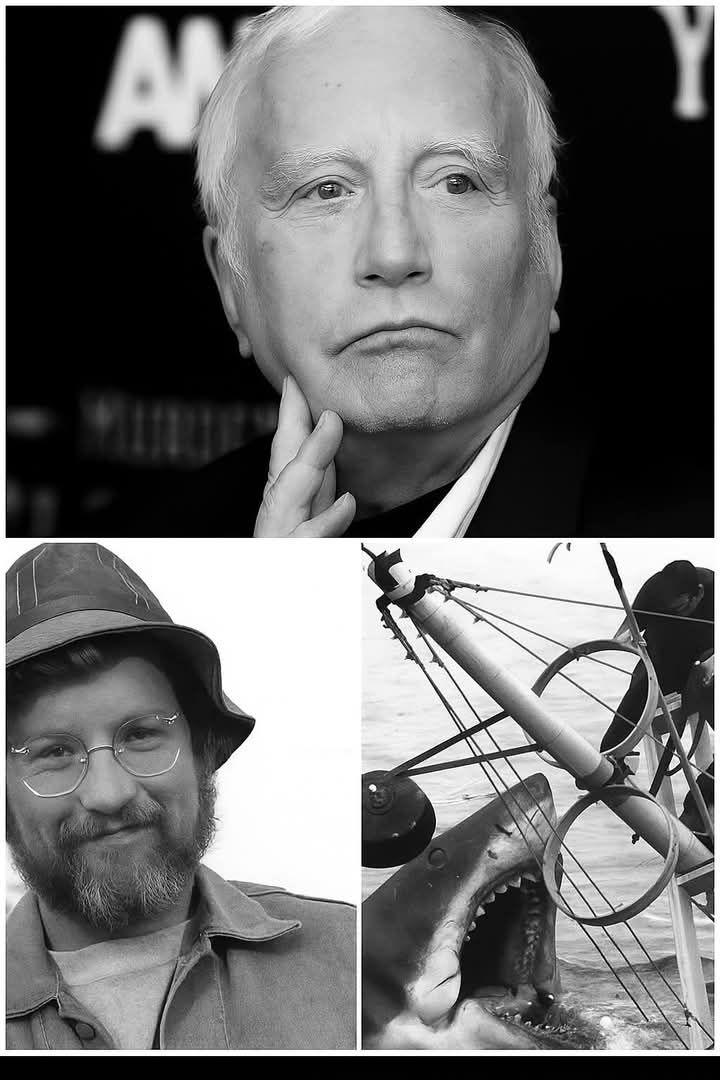Richard Dreyfuss recently reflected on his initial experience filming Jaws in a 2023 interview with Entertainment Weekly, revealing that he was convinced the movie would be a disaster that might end Steven Spielberg’s career. Filming took place on the ocean with a mechanical shark that frequently malfunctioned, leading Dreyfuss to believe the project was doomed. None of the cast or crew anticipated that they were about to create a cinematic milestone.
The film was adapted from Peter Benchley’s 1974 novel, but the screenplay underwent significant changes during production. Spielberg initially planned to incorporate the novel’s darker themes, such as a mafia subplot and an affair involving Hooper and Brody’s wife. However, once shooting began, he pared these elements down to concentrate on suspense and character dynamics, resulting in a tightly woven narrative that contributed to the film’s legendary pacing.
The mechanical shark, dubbed “Bruce” after Spielberg’s lawyer, was a constant source of frustration. Made of steel and fiberglass and weighing 1.2 tons, it was powered by hydraulic systems ill-suited for saltwater. On its first day, the entire rig sank and had to be recovered from the ocean floor. Spielberg was so distraught he reportedly cried in his hotel room, fearing the film would be canceled.
One of the most memorable lines, “You’re gonna need a bigger boat,” was improvised by Roy Scheider, who played Chief Brody. The phrase was never scripted but originated as an on-set joke about the cramped support boats. Spielberg liked it so much that he kept it in the final cut, where it became iconic.
The tension between Richard Dreyfuss and Robert Shaw, who portrayed Quint, was genuine. Shaw disliked Dreyfuss from the start and often insulted him between takes. Shaw, known for heavy drinking, once challenged Dreyfuss to a stunt competition, which Dreyfuss declined. Shaw later explained that his insults were meant to provoke authentic contempt on screen, which translated into powerful chemistry in their performances.
John Williams’ now-famous score initially met with skepticism from Spielberg. When Williams first played the simple two-note motif, Spielberg laughed and thought it was a joke. However, once paired with the shark attack scenes, the minimalist music became essential in building suspense, especially when the shark itself was not visible.
A standout moment in the film is Quint’s haunting USS Indianapolis monologue, which Robert Shaw rewrote himself. Originally a lengthy, factual speech, Shaw, a playwright, condensed it into a poetic and chilling narrative. He filmed the scene in a single take late at night after a few drinks, creating one of the movie’s most powerful sequences.
Filming on the ocean presented constant challenges. The crew had to hide all boats from the camera’s view, and any accidental sailboat in the background ruined takes. Seasickness plagued the actors, equipment malfunctioned, and Spielberg often began each day uncertain if they would capture usable footage. He later admitted to experiencing panic attacks, feeling overwhelmed by the production’s difficulties.
The shoot was originally planned for 55 days but extended to over 150, with the budget swelling from under $4 million to more than $9 million. Universal Studios considered replacing Spielberg multiple times, but producer Richard Zanuck stood by the young director, who was only 27. Spielberg refused to film the shark’s final destruction until he was confident the climax was earned.
To compensate for the unreliable mechanical shark, Spielberg cleverly implied the creature’s presence through underwater point-of-view shots and ominous music cues. This approach, born out of necessity, heightened the audience’s fear more effectively than showing the full shark, making viewers dread what they couldn’t see.
Jaws premiered on June 20, 1975, with modest expectations, but it quickly became a cultural phenomenon, sparking long lines at theaters and widespread beach panic. Spielberg, wary of the crew’s playful threats, skipped the final day of shooting to avoid being tossed into the ocean.
Despite the chaos and setbacks, Jaws redefined the summer blockbuster and remains a testament to perseverance and creative problem-solving in filmmaking. Every frame was hard-won through turmoil, mistakes, and sheer determination.
